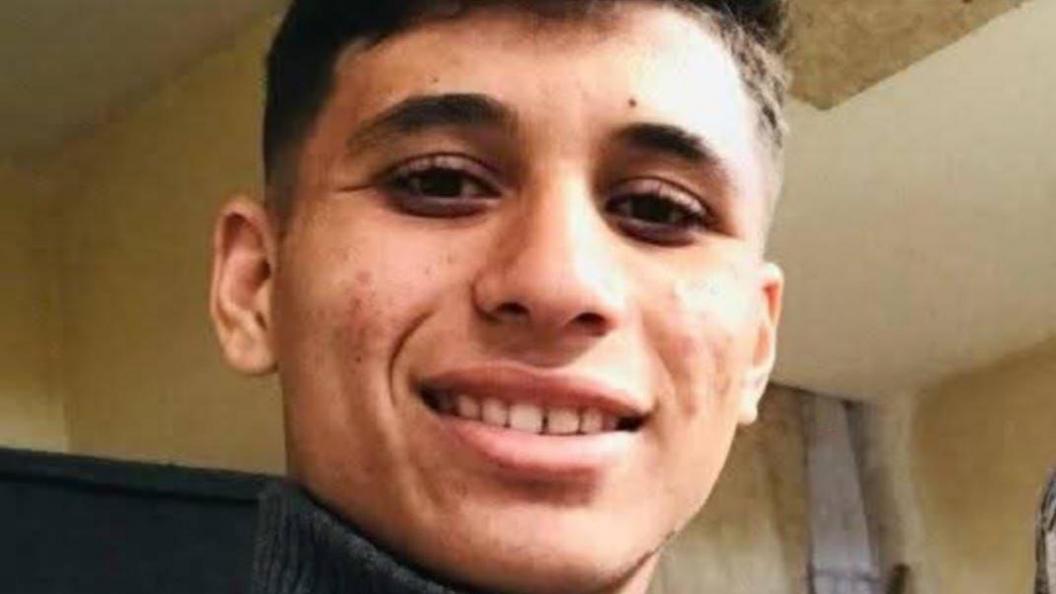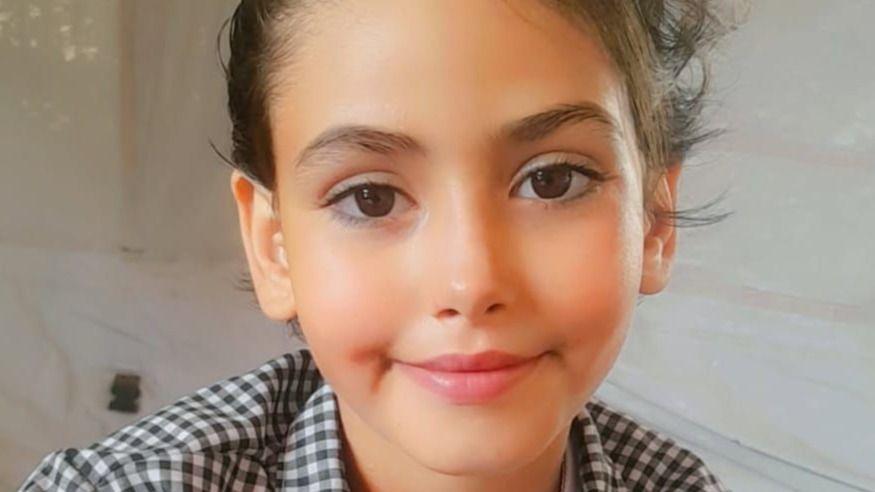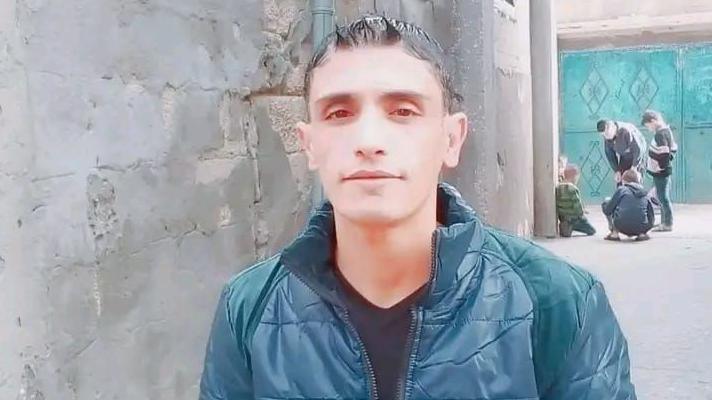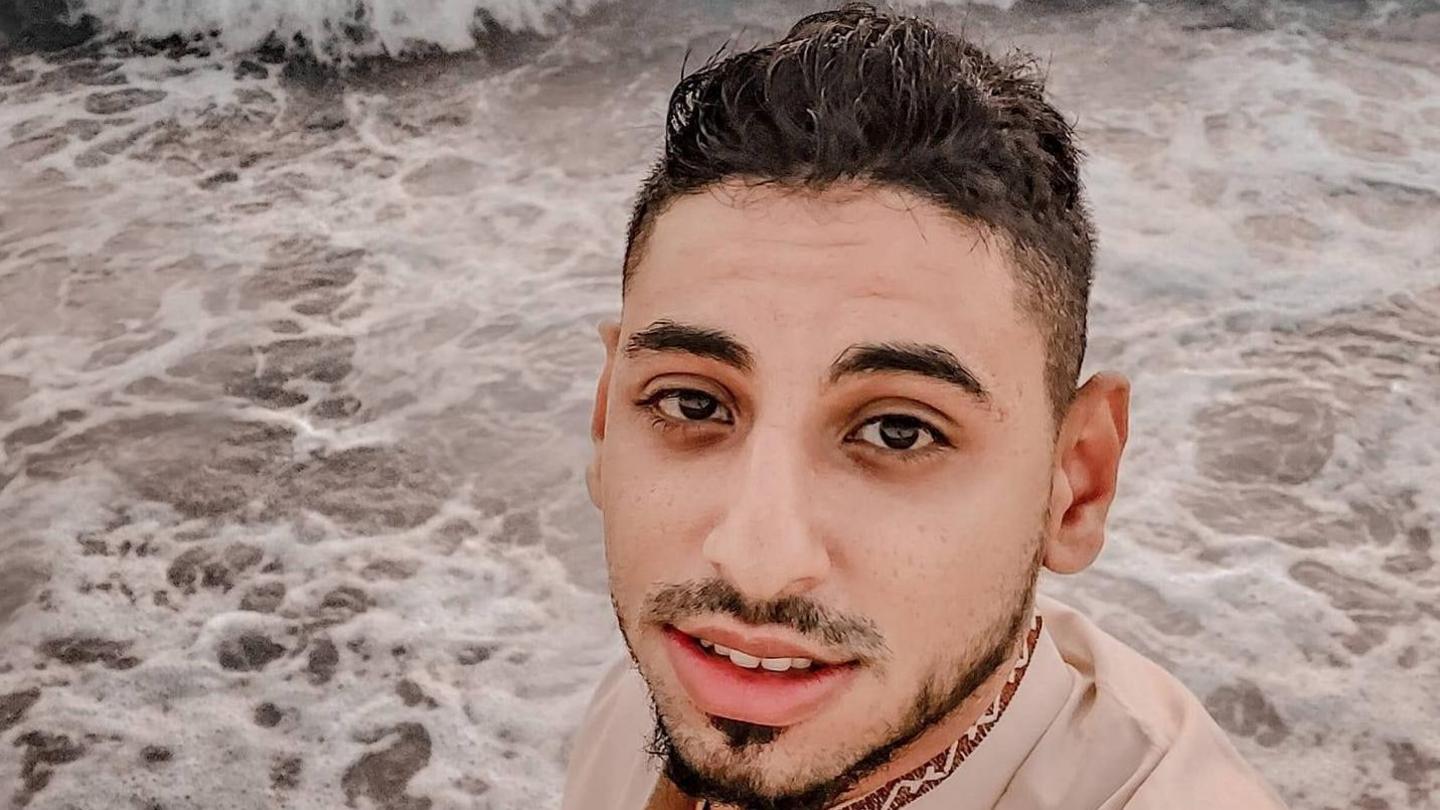He went to get aid and didn't come back - stories of people killed in Gaza

Abdullah Jendeia had been searching for food when he was killed
- Published
A teenager who went looking for food, an eight-year-old girl living in a camp for displaced Palestinians, and a man who endured months of malnutrition are among those who have died in Gaza in the past week.
On Thursday, the Hamas-run health ministry recorded two new deaths due to malnutrition in the past 24 hours, as aid agencies warned Israel's siege of Gaza was causing "mass starvation" to spread across the territory.
An Israeli government spokesman denied this, saying Hamas was to blame for creating a food shortage and hijacking aid.
With the UN warning that humanitarian conditions in Gaza are breaking down at an "accelerating" pace, and the World Health Organization saying that at least 10% of Gazans are acutely malnourished, the BBC has been speaking to people in the territory about loved ones they've lost in the past week.
Abdullah Jendeia, aged 19
Nineteen-year-old Abdullah Omar Jendeia was killed on Sunday, 20 July, when he went out to find food, says his sister Nadreen.
They had been staying in their mother's damaged house in al-Sabra in central Gaza.
"He was impatient to go and fetch some food that day," Nadreen says.
"I told him, 'Just eat the few lentils we have left,' but he refused."
She says that at 16:00 (13:00 GMT) Abdullah left the house to walk more than 5km (3.1 miles) north to an aid truck that comes weekly, to get a few kilogrammes of flour to feed the family. He was with two of his brothers and some in-laws.
At about 23:00 that night, one of the brothers, Mahmoud, called Nadreen to tell her that while they were waiting by the aid truck Israeli soldiers had suddenly opened fire on them.
They were in the Netzarim Corridor - a military zone cutting off the north of the Gaza Strip from the south.
Mahmoud told Nadreen that Abdullah had been killed and he and the other brother had been injured.
"He was a joy to be around, kind-hearted and fun at the same time," she says, recalling afternoon walks she and Abdullah used to take on the beach in Gaza when they were younger.
"He loved football and sport."
She says Abdullah used to work with local grocers, helping to carry fruit and vegetables for them and "had dreams of opening a new business after the war".
In response, the Israel Defense Forces (IDF) said it was operating to dismantle Hamas's military capabilities and took feasible precautions to mitigate civilian harm.
It said that it could "better address your query if you were able to provide coordinates" for the location of the incident.
Gaza's Hamas-run civil defence agency said Israeli fire had killed a total of 93 people and wounded dozens more across Gaza on that day, mainly near aid points.
Speaking about one specific incident in northern Gaza, the Israeli military said troops fired warning shots at a crowd "to remove an immediate threat" but disputed the numbers killed.
Sela Mahmoud, 8

Sela Mahmoud had been staying with her mother and siblings at a camp for displaced Palestinians
Sela Mahmoud, eight, was killed in the early hours of Tuesday morning, her mother Alaa Shehada says.
The little girl had been staying at a camp for displaced people in al-Shati in northern Gaza with her mother and two older sisters, aged 14 and 13, and younger brother, six.
On Monday evening, Alaa says she and her 13-year-old daughter set out to the Zikim aid point, a couple of kilometres away, to get food, leaving the other three children behind.
But at about 01:45 she heard the sound what she thought was shelling in the distance and immediately feared the worst.
"I felt the strike in my heart. My intuition as a mother told me this strike reached my kids."
With the help of strangers, Alaa managed to phone her older daughter back at the camp who confirmed that they'd been struck and Sela killed.
"My heart was broken," says Alaa.
The other two children survived but were seriously injured and are in Gaza's al-Shifa Hospital, she says.
Alaa says Sela, who had been desperately hungry in her final days, loved spending time by the sea.
Her last words to her mother were: "I want to eat a whole bowl of lentils until I'm full."
The Israel Defense Forces said that without being given co-ordinates, it could not comment on the incident. It says it takes "feasible precautions to mitigate civilian harm".
Ahmed Alhasant, age 41

Ahmed had been a football fan who installed television satellites
Ahmed Alhasant, 41, died on Tuesday, 22 July.
His brother, Yehia Alhasant, says "malnutrition killed him - day after day, he was getting more and more poorly".
Yehia says his brother started to become unwell after Israel imposed a blockade of aid into Gaza in March. Since May, Israel has been allowing some aid into the territory, but aid groups say this is nowhere near enough.
For three months, Ahmed, who was also diabetic, was not able to get enough food or drink, relying on bits of bread and occasionally canned food, says Yehia.
As a result, his weight plummeted from 80kg (12 stone 8lbs ) to 35kg and his health rapidly deteriorated, Yehia says.
"His speech was slurred and sometimes we could hardly understand him," Yehia says.
Ahmed's cousin, Refaat Alhasant, says the family took him to hospital, but "they would tell us 'he needs food not medicines'. So we took him back home."
Yehia says Ahmed, who used to install television satellites and was a football fan, "passed away peacefully" at his home in the city of Deir al-Balah in the centre of Gaza.
"He had a strong personality and was one of the kindest people you could ever meet," Yehia added.
Mohamed Kullab, 29

Mohamed Kullab was described by his brother-in-law as someone who was 'full of life'
Mohamed Kullab, 29, was killed in an air strike on 22 July, according to his brother-in-law.
Amar Ragaida says Mohamed had been resting in his tent in a camp for displaced Palestinians in the al-Qadesiya area of western Khan Younis, in southern Gaza, when an air strike hit the area between 17:00 and 18:00 local time.
"He was on his own. We heard that he was killed a few hours after the bombing when some people called his sister and informed her about his death," says Amar.
Amar says he spoke to Mohamed the day before he died - they bumped into each other while looking for aid.
"He told me, 'don't go on your own, I will try and get you some flour'. The next day, he was dead."
Mohamed leaves behind a sister and a younger brother who completely depended on him, says Amar.
"Kullab was a respectful young guy, who was full of life. He wouldn't engage himself in any unnecessary issues and everyone around him loved him," he says.
In response, the IDF said it takes "feasible precautions to mitigate civilian harm" and that it would need co-ordinates of the location where he died to look into his case any further.
Additional reporting by Amira Dakroury